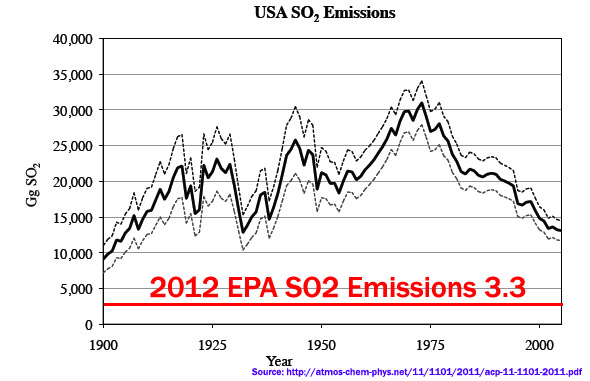Positive Externalities Still Missing in Academia for Power
I was made aware of this study during a dialogue on a LinkedIn group – http://www.aeaweb.org/articles.php?doi=10.1257/aer.101.5.1649 To see the context of dialogue please click here.
There is a huge assumption made by the authors. And that is the current price of power holds all the value of power in it. The authors fail to realize power markets are not based on personal value of power but mainly on power COST plus a fix return – particularly in regulated markets. In de-regulated markets perhaps one could argue to some extent, but I would contend there are no completely de-regulated markets yet. Many markets still have legacy regulated assets in them.
When goods are sold below their personal value (the price someone would pay in order to balance the value they receive from it) many academia market models will fail. First the mere fact a good would sell below their personal value breaks some of the free market model. Typically a good will sell below their personal value because of excess supply and governmental involvement. Clean water is a simple example. The personal value of having clean water is quite high – you get to live and not be sick. We could probably all individually boil water and everyone would probably have different levels of clean water. Or we could have governmental/regulated entity treat water and make it convenient, standardize, and accessible for everyone. Society then pays a price for this which typically is based on COST plus a return not personal value to each individual.
In the case of electricity, the cost of individual electricity production is quite high and dangerous – everyone can’t simply boil water like in the water example. It would have been out of the reach of so many. Therefore the utility model was built – A guaranteed return on investment on a COST basis, so that people may have access to power on a cost effective and safe basis. Once again it is not priced at the personal value that a person is getting from power. Ask yourself if access to power was limited and it was auctioned on ebay how much would you pay and outbid your neighbor? In times of blackout that value is quite high. Certainly worth sacrificing your monthly cell phone, internet, and cable bill since without power the phone, internet, and cable is meaningless. Because electricity is sold at a cost plus basis there exist many positive externalities beyond the simple cost of power. The personal value generated by having electricity will vary by individual. To the simple mundane person who does nothing with electricity, but indulges one-self with entertainment perhaps the personal value caps out at the value of that individuals disposable income. However if we use the authors example of a Berry farmer perhaps that value is much higher.
The author takes a very pessimistic view point of the value of electricity and ONLY views electricity production as having negative externalities. I do acknowledge the negatives do exist, but I am also a political and pragmatic to realize inherit personal value being derived by electricity beyond the cost paid. In the case of the berry farmer example, which they start to discuss on page 5, they only note the negative cost that power production has on the farmer. I acknowledge this does exist. However the gain not mentioned is the availability of cheap power. Clearly the market choice was to take the cheap power and deal with some of the consequences and in return the cheap power will deliver value beyond the cost. For example, it could have enabled the berry farmer to create an electronic packing system which doubles his productivity. If it wasn’t for the environmentally damaging, but cheap generation the cost of electricity may have been out of reach to install and operate this new packing system.
In an ideal world perhaps he could have BOTH cheap power and clean energy, but the laws of nature did not make it so. We can easily create a scenario that the pollution caused from the generation may reduce his production by 20%, but having an electronic packing system more than made up for his losses; as getting his product to market in efficient time before the berries expired was a crucial step. In addition because electricity is available for the masses in relative cheaper cost, more people have more disposable income to purchase berries vs. the 99 cent menu at the local fast food store.
The access of cost effective electricity allows internet and commerce to grow. If we add a global view to it – the berry farm and their access to low power enabled them to be competitive from farmers from S. America. If the cost of power was greater the farmer may not be able to compete. Having cleaner air by itself does the berry farmer no good if his livelihood is eliminated. Clearly the Berry Farmer would pay a lot more for power – particularly in hindsight given all the economic gains he may have not imagined. They simplified the problem too much and focused only on the negatives of generation. There are positive externalities not shown in the price perhaps as much as negative externalities. Both of the externalities are hard to discuss.
Increasing the cost of electricity could put electricity out of the reach to the common man. At a point, air pollution becomes a subsidy for the wealthy. I would contend the current air standards in the US are suffice for the majority of society if they were given the option to allocate money into either housing, food, healthcare, and even transportation versus better/cleaner air. I do believe the air could be cleaner, it is just a question of priorities. The inverse to the US, I would contend is probably China. The pollution is so bad there that it is at the tipping point that priorities need to shift. It is good to have a job, but if you can’t live very well what is the point. In the US we prioritized the environment later in our industrial revolution. Did you know – US sulfur dioxide emissions are below 1890 levels now!? http://atmos-chem-phys.net/11/1101/2011/acp-11-1101-2011.pdf
When will it be enough? To believe that you have infinite amount of money/resources and can effectively solve everything is not reality. Perhaps we are designed to listen to the squeakiest wheel versus helping the truly needed. The nation needs to prioritize and make some sacrifices. This has been proven over time.
Please do consider All Energy Consulting for your energy consulting needs. We offer well-rounded pragmatic solutions to your issues.
Your Pragmatic Energy Analyst,
614-356-0484



